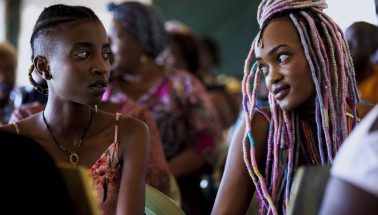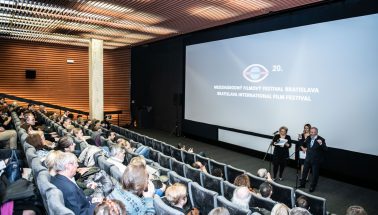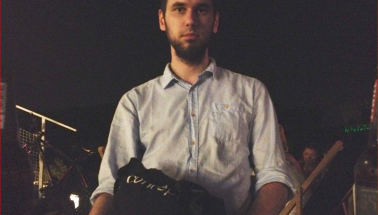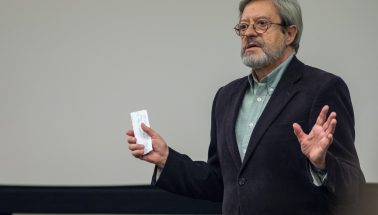Dalibor Matanić demonstrated interest in strong issues already in early stages of his career. In his latest motion picture, Zvizdan (2015), which took home Un Certain Regard Jury Prize from this year’s Cannes IFF, he deals with complicated mutual relations between Croats and Serbs.
Matanić serves a true cinema feast of three courses that may look rather simple and ordinary but comprises emotionally nutritious stories that are very high in moral fibre content. Although we have all seen the issue of forbidden or unfortunate love rendered countless times and treated in millions of ways, this is still an original film, perhaps mostly thanks to the choice of main protagonists of Tihana Lazović and Goran Marković combined with the director’s specific approach. The same couple is the centrepiece of each of the three stories but every time they appear under different names and play different characters, although Lazović is always the Serbian girl and Marković the Croatian boy. This untraditional approach allows both protagonists to expose themselves completely and manifest their qualities to the full. Matanić works with them extensively and shows his great sense for directing throughout the film. Slow tempo and long shots by DP Marko Brdar paint mutual relations between characters even without unnecessary dialogue; authentic direction without much music (except diegetic music and transitions between particular stories) portrays the tragedy ensuing from the conflict between the two ethnic groups in all bareness and without any pathos whatsoever.
While each of the three stories climaxes on its own, they also climax together as one organic whole. The first story set in 1991, when Serbia occupied parts of Croatia’s territory, reveals the picture’s central theme. It is perhaps the most suggestive of the three as the viewers meet the two lovers, Ivan and Jelena, whose love is physically hindered by a border guarded by paramilitaries with machine guns. The second story takes place in 2001 and shows an ethnic Serbian mother and her daughter return to their old home in a war-ravaged Croatia; although they are both scarred by the war, only the mother strives to dress the emotional wounds and go on with her life without prejudice and hate. The tension between her daughter Natasha and a Croatian boy Ante who fixes things in their dilapidated house is almost physically present; this story is the best of all three in terms of structure and narrative. The final story is set in 2011 and is emotionally the most powerful.
The director’s effort to depict the long-term effects of a military conflict without showing almost any weaponry but three different couples facing a different yet identical problem (which would explain casting the same pool of actors for every story) has turned out to work perfectly. Instead of a war drama, Matanić thus created an intimate psychological drama with a very topical and powerful message.
By Martin Adam Pavlík
Translated by Daniel Borský











